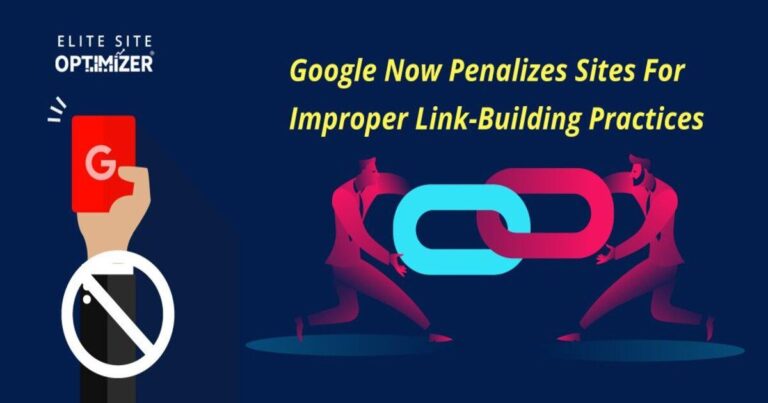SEO Ranking – An Overview
It is a known fact that an effectively optimized website would rank higher on the SERP.

Ranking in SEO
When we enter a phrase in search for information on Google, the first three results are the best of the lot. The probability of visitors clicking on the first three links is much higher than the other links. Again, appearing on the first page of any search information refers your website to be most aptly optimized based on the search engine standards. This conclusion is based on a study that 95% of the visitors do not move out of the first page on the lookout for information.
With this interpretation, read on to drill down further about how Google algorithms segregate information and few aspects for marketers to keep in mind while web page optimization.
Read also: How does Google Algorithm deal with website ranking?
Google’s Expectation from SEO:
Google as a search engine aims to provide the right and most relevant type of information to visitors. In this process, Google segregates the huge amount of information it obtains at every search and gives the visitor the best possible result based on Google ranking algorithms. Ranking algorithms are a set of sequential procedures to categorize the most relevant information. Henceforth, having a brief idea about the working of these algorithms would further help strategists to fabricate an impactful marketing plan.
Primarily the Google algorithm looks for:
- The quality of content provided
- Relevancy, authority and depth of the content showcased on the web page
- The authenticity of source providing the content
- Online presence of the website owner
How does the Google Algorithm work?

Google Algorithm
To begin with, when a visitor keys in the search terms,
- The Google spiders crawl through the website and the pages to check its quality. Sitemaps plays an important role as the crawlers use these sitemaps to find new links and pages.
- The appropriately optimized web pages which is based on keywords and website exclusivity are then added to the Google’s index and the further process of cataloging these pages happens
- On searching specific terms, Google throws out the most relevant searches first depending on the catalog listing.
Does Google Ranking Impact the Traffic on Web Page?

Google Ranking
Yes! Essentially every marketer aims to fetch the maximum amount of traffic to his web page. An appropriately optimized web page with the right type of content on it would immensely contribute in boosting webpage traffic. When the attributes of a web page are on par with the demands of Google search engine algorithms, the web page undoubtedly ranks higher on SERP thereby catching the attention of visitors and hence improving online traffic.
Google ranking varies and it does vary based on location too. Marketers should ensure this attribute is well thought-out specifically if they have a geographically augmented customer base.
What is Location Based Ranking?
To cope with soaring expectations and shifting trends, location based ranking has come up as a boon in disguise. This ranking algorithm could give you results exclusively with regard to your location. For example if you were to search for a restaurant in your area, your search term would be something like “restaurant+ location name” rather than simply “restaurant” to save you from the work of scanning through multitudes of options.

Location Based Ranking
To add on, location based ranking also helps businesses to rank higher on Google by setting up dedicated websites for specific locations. You could
- Create specific location based URLs instead of using the generic home page URL.
- Showcase content with regard to the particular region which could give better traffic and also help connect better with the target audience.
- Put up location based advertisements to increase credibility on Google
Read also: Explore how a location based strategy for SEO makes the difference
Tackling Google Ranking Fluctuations Effectively:
It is quite normal that Google rankings keep fluctuating very frequently. Your web page might be on position one today, getting back to position three, four and so on in the days to come. So is this a real concern? Actually, Google tends to keep track of web pages and pushing rankings back and forth. If your web page was ranked two today and ranks four tomorrow, it definitely is not a matter of concern. You ought to essentially follow up your ranking but give it time spanning from weeks to a couple of days, not every day.

Google Ranking
What should be done?
Again, have a hold on your website traffic. This could be accomplished by having an effective SEO tool in place which would take charge and keep monitoring your webpage traffic consistently. If you derive from the reports generated that your site is driving steady traffic, you need not worry or make drastic changes to your SEO strategy.
When should you be concerned?
Consider your website having 20 pages and a few important pages have dip in terms of ranking almost suddenly. In such cases, probably Google has caught hold of something inappropriate on your web page and it needs your attention. Reevaluate your web page to check on bottlenecks.
Ranking high on SERP and maintaining a steadily performing web page involves numerous technical intricacies. One pivotal support every marketer needs a next-gen SEO tool which takes charge of end-to-end tracking activities and produce exhaustive reports on the web page performance on a regular basis.
Here is a comparison of few state-of-art SEO monitoring tools:
Google’s Webmaster:

Google’s Webmaster
This tool is used primarily for site analysis. Thus helps marketers see the web page as Google does supporting them in comprehending the nuances of Google algorithm. Yet another aspect of this tool is the page speed monitoring which plays a significant role in checking website performance.
Elite site optimizer:

Elite site optimizer
ESO is an automated SEO tool which equips marketers with vital information about their web page performance like on-page issues, site audit, and also top performing page. To add on this tool provides the missed opportunities report, a detailed traffic analysis report, mobile keyword rankings and also line check analysis to better understand website intricacies.
SEMrush:
SEMrush
It functions on keyword research. Hence provides extensive reports about individual page performances based on keywords. Also helps in performing a comparative analysis with regard to competitors, delve into link building, on-page issues and analyze keywords used.
Read also: Best SEO Tools for complete Website Analysis
Moz’s Pro tools:

Moz’s Pro tools
It enables analyzing 3000 links on a given web page. It is a unified tool which helps in tracking web page performance, SEO ranking and also generate interactive reports.
Upcity’s SEO report card:

Upcity’s SEO report card
Read also: SEO Automation Tool – A magnified approach







